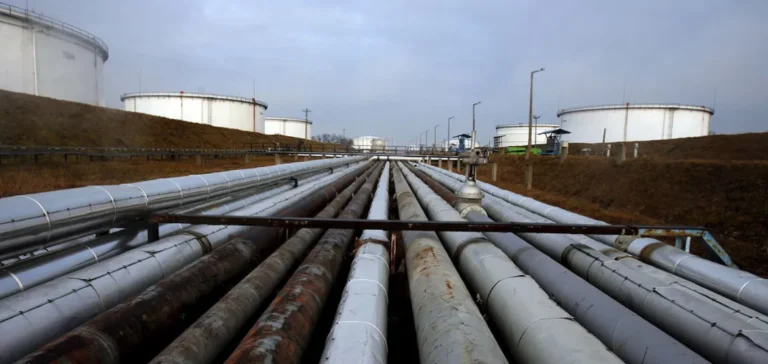Hungary has announced the completion by 2027 of its section of a new oil pipeline connecting Serbia, aimed at securing oil supplies to Central Europe. The project is backed by €320mn ($345mn) in public funding over three years and will enable Serbia to receive Russian crude through the Druzhba pipeline, while reinforcing the region’s energy infrastructure.
A direct diplomatic dimension to the energy project
Hungarian Minister of Foreign Affairs and Trade Peter Szijjarto stated that repeated attacks by Ukraine on pipelines justify stronger cooperation with Belgrade. According to him, the project represents “an important step on the path to our region’s energy security”, stressing the need to ensure reliable flows into Central Europe.
The construction of this new link takes place in a context of high energy dependency on Russia. The Druzhba pipeline remains one of the main transit channels for Russian crude to the European Union, passing through Ukraine, a country currently at war with Moscow. The decision to maintain and extend use of this route may raise concerns within European institutions.
A bilateral partnership under regional scrutiny
The project is presented by Budapest as a logistical response to increasing disruptions on the existing network. However, the nature of the partnership, relying on the transport of Russian crude through Serbia — a candidate country for the European Union — raises questions about the coherence of EU commitments to energy autonomy.
Hungarian State Secretary for International Communications Zoltan Kovacs confirmed that initial technical planning is underway in coordination with Serbian authorities. No detailed construction timeline or names of contracting firms have been disclosed at this stage.
A fragile balance between energy security and political dependencies
While several EU member states aim to reduce their exposure to Russian hydrocarbons, Hungary continues an energy strategy aligned with partners historically close to Moscow. This approach diverges from EU policies promoting supply diversification.
Completion of the Hungarian section in 2027 could consolidate a south-north oil corridor parallel to existing routes, but without altering the nature of the flows. In the medium term, this decision could reinforce regional interdependencies rather than lessen them.






















